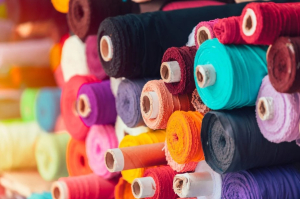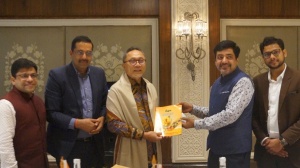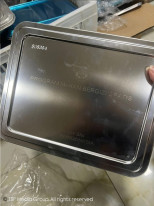APLE presents innovative solutions fostering cross-border MSME growth amid import regulations
The Association of E-Commerce Logistics Entrepreneurs (APLE) filed a rejection against Minister of Trade Regulation (Permendag) No. 50 of 2020 that prohibits the sale of imported goods below US$ 100 or IDR 1.5 million.
Previously, the government used this regulation to prohibit the sale of goods for micro, small and medium enterprises (MSMEs) with a selling price of US$ 100, and implemented this policy because for instance, one of the specific technology goods was required to be sold at a price limit of US$ 100 and not less.
The government will also revise provisions on hybrid marketplaces and online retail because it has the potential to hurt local MSMEs, which could sell products that are not always locally made but imported and have entered Indonesia.
This regulation also prohibits digital platforms from being producers at all because the permit arrangements are different. In addition, it also requires social commerce to have business licenses, and will be subjected to tax.
Currently, the regulations are still being revised and are still in the process of harmonization at the Ministry of Law and Human Rights (Kemenkumham).
APLE propose 4 alternative solutions
The government's move was actually rejected by APLE. Sonny Harsono, the Chairman of APLE said that the new policy does not reflect the real conditions on the field.
He added, if the government stops selling imported goods such as cell phone accessories or goods that are not produced domestically, it will lead to illegal imports.
"Because based on economic principle, if demand is still existed, supply will be made available. This condition has actually been illustrated in local e-commerce which shows most imported goods are offered by non-importer sellers," said Sonny, on August 2, 2023.
He said platforms that facilitate cross-border transactions like this are not only found in Indonesia, but in various countries.
However, other countries prefer to impose taxes on the price of goods instead of prohibiting certain items to be sold below a certain price.
"APLE also said that there is a large platform that conducts MSME cross-border export transactions to 6 countries with a volume exceeding the import figure. This means that this transaction actually increases the current account, or the difference between exports and imports in a country," he said.
Sonny explained that the restricting cross-border imported goods transactions actually threatened the existence of the MSMEs themselves. This is because the process of cross-border imports to Indonesia is developing very rapidly.
On the other hand, from a process standpoint, imports are carried out 100% digitally and automated, moreover customs have applied e-catalogs so that state revenues originating from import duties, value added tax (VAT) and large income tax (PPh) can be confirmed appropriately.
"Because platforms that do not carry out cross-border transactions will actually threaten the existence of these MSME actors because there are still ex-imported goods there which can indeed be traded without having to fulfill the obligation to provide information on the origin of the goods. Of course, this kind of thing actually harms the state, because These ex-imported goods are not subject to tax," he said.
APLE proposes 4 solutions to this problem. First, the government is expected to oblige platforms for cross-border import transactions to facilitate cross-border exports, with higher volumes.
"Providing incentives for platforms that have implemented such practice is also important. Incentives can be provided through service support from the Directorate General of Customs and Excise and other related agencies," he said.
Second, the government should increase import duties from 7.5% to 10%, added with 10% VAT, and income tax (PPh). That way, the price of imported goods will not be cheap, and domestic goods can gain market competitiveness.
Third, the government should conduct a screening against e-commerce platform that does not conduct cross-border transactions.
Fourth, the government should make visits to MSME campuses initiated by the platform to explain the benefits of cross-border export transactions for MSMEs in Indonesia.
Already have an account? Sign In
-
Start reading
Freemium
-
Monthly Subscription
20% OFF$29.75
$37.19/MonthCancel anytime
This offer is open to all new subscribers!
Subscribe now -
Yearly Subscription
33% OFF$228.13
$340.5/YearCancel anytime
This offer is open to all new subscribers!
Subscribe now







